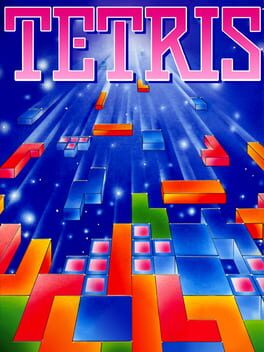Sight, Sound, and Input
There's been a lot of discussion on the importance of canons lately, and it does make me think about the position of video games relative to the other arts. The first Sight and Sound poll was in 1952, fifty or so years after cinema first started, and even if we're starting to approach that stage now with games I'm not convinced that there's a serious critical community out there with the capability to really understand the artistry of these things in their proper context.
So it falls to sites like this to treat video games seriously, as an artistic evolution that adds input and control to audiovisual communications. I've often thought the job of the video game designer to be a weird fusion of film director, architect, and technological innovator, further complicated by the notion of some games being designed by a whole studio instead of an individual creative voice. I'd argue the games below are each positioned at important junctures in the medium's history, but also have something rogue, original, or simply inexplicable about them that elevates them away from being merely "important" and into something resembling - on a personal level - "canonical".
Tetris (1984)
The greatest pure "game" of them all - simple enough for a child to understand, complex and thrilling enough to never grow old.
Earthbound (1994)
In contrast, an imperfect game that borrows most of its mechanics from Dragon Quest but twists them to its ingenious design. It radically re-interprets American popular culture of the 20th Century through its uniquely Japanese and childlike perspective, in which everything from aliens to pizza delivery to the Klu Klux Klan is made disturbingly whimsical. One of the great works of art about childhood.
Final Fantasy VII (1997)
Along with Super Mario 64, an amazing re-invention of the form. Takes Final Fantasy VI's classical cinematics to strange new cosmic heights, where young radicals are eventually dwarfed by the awesome power of the universe.
Halo: Combat Evolved (2001)
Doom and Quake wrote the FPS rulebook, but Halo brought it home, with a perfectly judged variety of environments, enemies, and weapon types. Tonally daring, too, with the mid-point switch to survival horror.
Super Smash Bros. Melee (2001)
A fun, fast, and brutal multiplayer system, devoid of any fat. Exhibit A in why video games are unlike any other medium - they generate moments, in this case with other people, that have to be experienced, not merely observed.
World of Warcraft (2004)
Exhibit B in why video games are unlike any other medium. I played World of Warcraft during its Burning Crusade era, which can never be historicised or archived - it existed as a huge, living, breathing document, an endless community theatre production with millions of participants. Its balance between short- and long-term rewards, and its aesthetic innovations, have never been equalled on such a scale, before or since.
Metal Gear Solid 3: Snake Eater (2004)
Like Earthbound, it twists Western iconography - in this case, the Cold War thriller - into something politically and emotionally daring, elevated by Hideo Kojima's increasingly uninhibited experimentation with gaming mechanics.
Shadow of the Colossus (2005)
16 boss fights, each different from the last, culminating in a devastating ending that directly relates the game's weight of tragedy into the player's control.
Demon's Souls (2009)
Dark Souls or Elden Ring might be the more ambitious, baroquely beautiful games, but Demon's Souls did it first and did it the weirdest, to the point that games are still catching up with it. Hidetaka Miyazaki's control of environmental storytelling is second to none.
Astro Bot: Rescue Mission (2018)
And if the future of video games is still intertwined with technological innovation, then no game of the past ten years has impressed me more than this - a game that boldly attempts to re-wire its audience in the act of seeing, hearing, moving.
So it falls to sites like this to treat video games seriously, as an artistic evolution that adds input and control to audiovisual communications. I've often thought the job of the video game designer to be a weird fusion of film director, architect, and technological innovator, further complicated by the notion of some games being designed by a whole studio instead of an individual creative voice. I'd argue the games below are each positioned at important junctures in the medium's history, but also have something rogue, original, or simply inexplicable about them that elevates them away from being merely "important" and into something resembling - on a personal level - "canonical".
Tetris (1984)
The greatest pure "game" of them all - simple enough for a child to understand, complex and thrilling enough to never grow old.
Earthbound (1994)
In contrast, an imperfect game that borrows most of its mechanics from Dragon Quest but twists them to its ingenious design. It radically re-interprets American popular culture of the 20th Century through its uniquely Japanese and childlike perspective, in which everything from aliens to pizza delivery to the Klu Klux Klan is made disturbingly whimsical. One of the great works of art about childhood.
Final Fantasy VII (1997)
Along with Super Mario 64, an amazing re-invention of the form. Takes Final Fantasy VI's classical cinematics to strange new cosmic heights, where young radicals are eventually dwarfed by the awesome power of the universe.
Halo: Combat Evolved (2001)
Doom and Quake wrote the FPS rulebook, but Halo brought it home, with a perfectly judged variety of environments, enemies, and weapon types. Tonally daring, too, with the mid-point switch to survival horror.
Super Smash Bros. Melee (2001)
A fun, fast, and brutal multiplayer system, devoid of any fat. Exhibit A in why video games are unlike any other medium - they generate moments, in this case with other people, that have to be experienced, not merely observed.
World of Warcraft (2004)
Exhibit B in why video games are unlike any other medium. I played World of Warcraft during its Burning Crusade era, which can never be historicised or archived - it existed as a huge, living, breathing document, an endless community theatre production with millions of participants. Its balance between short- and long-term rewards, and its aesthetic innovations, have never been equalled on such a scale, before or since.
Metal Gear Solid 3: Snake Eater (2004)
Like Earthbound, it twists Western iconography - in this case, the Cold War thriller - into something politically and emotionally daring, elevated by Hideo Kojima's increasingly uninhibited experimentation with gaming mechanics.
Shadow of the Colossus (2005)
16 boss fights, each different from the last, culminating in a devastating ending that directly relates the game's weight of tragedy into the player's control.
Demon's Souls (2009)
Dark Souls or Elden Ring might be the more ambitious, baroquely beautiful games, but Demon's Souls did it first and did it the weirdest, to the point that games are still catching up with it. Hidetaka Miyazaki's control of environmental storytelling is second to none.
Astro Bot: Rescue Mission (2018)
And if the future of video games is still intertwined with technological innovation, then no game of the past ten years has impressed me more than this - a game that boldly attempts to re-wire its audience in the act of seeing, hearing, moving.
10 Games
5 Comments
It's actually the PS4 VR Astro Bot I included, which (because of the cost of the hardware) not many people have played. But it's great - really cracks the issue of what to do with the camera in VR. Playroom was a bit less impressive as a result, though I like DualSense and thought it was used very well in Returnal. And yes, am well overdue to play Death Stranding...
Coming back to this…my bad! Still I think the inclusion’s interesting, VR’s biggest draw to me - so far - is its use as a theatrical and exhibition space, games so far have me less convinced (haven’t played Alyx or the likes tho). As for the DualSense, really looking forward to trying Returnal on PC with it but yeah…it really fits with Death Stranding’s aesthetic aim.










Fauxscerf
1 year ago